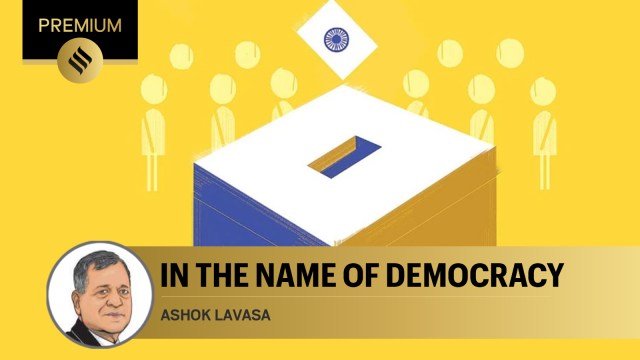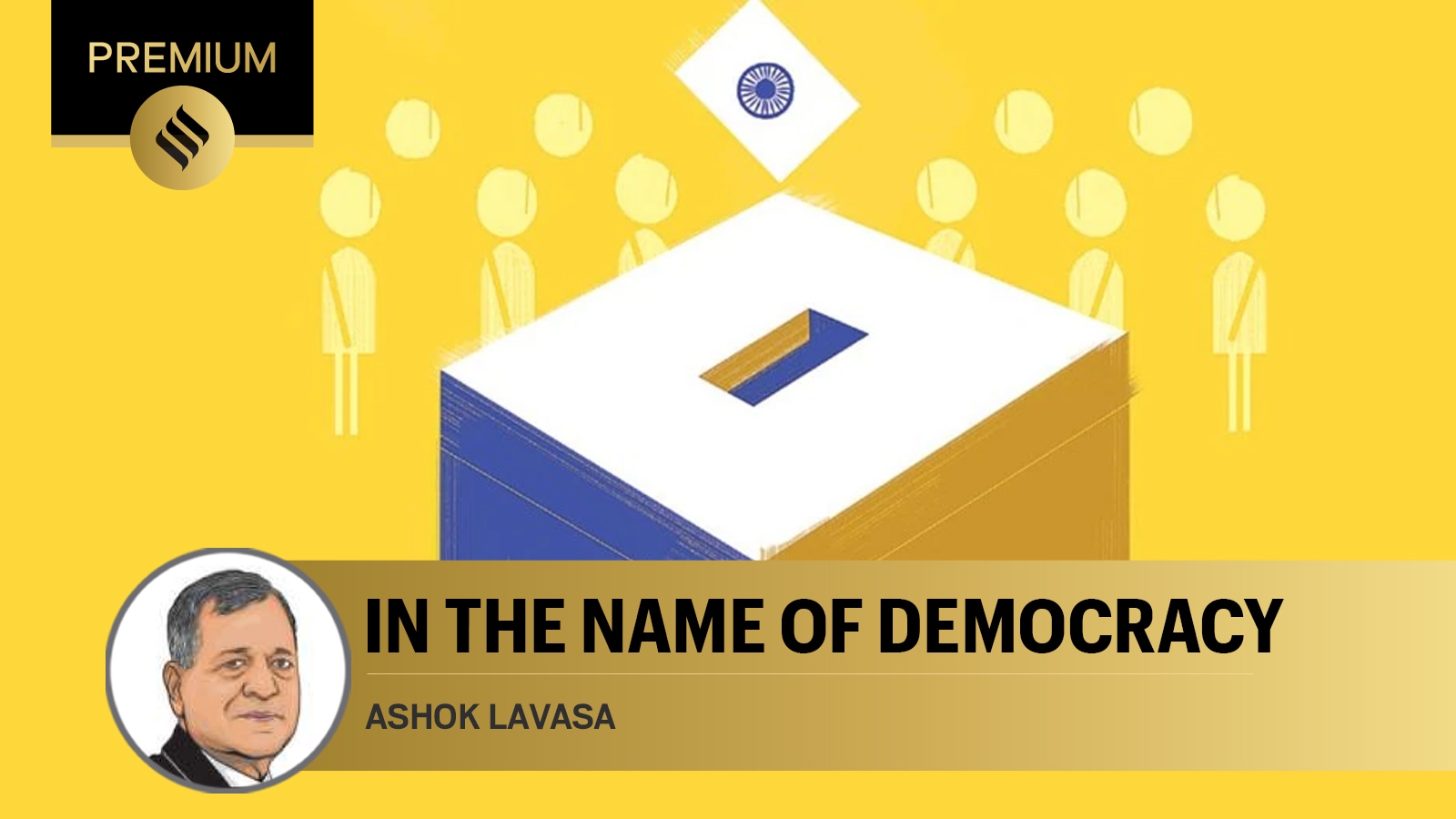Premium
Opinion by Ashok Lavasa
A wave of global anti-incumbency, public discontent, and divisive rhetoric. 2024, the year of the elections, witnessed everything.


Dec 31, 2024 19:32 IST First published on: Dec 31, 2024 at 07:10 IST
2024 saw the high tide of democracy; it also experienced extreme heat. The climate is changing, moderation is on the decline. In the case of the climate, it is possible to forecast a trend based on known anthropogenic factors. In the case of democracy, it might not be easy to read the future based on the outcome of the 2024 elections, described as a “make-or-break year for democracy”. Almost half the global population in countries such as India, Indonesia, South Africa, Mexico, the United States, Germany, Greece, and the United Kingdom got an opportunity to vote.
There are a few discernible features of these elections, although it might be premature to perceive a pattern. Writing for The Guardian, Jonathan Yerushalmy and Oliver Holmes see “little evidence to show global trends to either the left or the right side of politics”, but “those in power lost out”. Whether it was a “bonfire” or “a graveyard for incumbents” (Financial Times), it is the first time since universal suffrage began in 1894 that over 80 per cent incumbent parties lost support compared to the previous election. The US swung to the right in a hat trick of anti-incumbency; the UK swung to the left. In Botswana, the incumbent party lost power after six decades. In South Korea, the opposition Democratic Party won a majority in the National Assembly, counterbalancing President Yoon Suk Yeol of the People Power Party. Opposition parties of different ideologies were voted to power in nations as diverse as Panama, Portugal, Ghana and Uruguay. In India, South Africa and Japan, incumbent parties didn’t lose power but lost seats. Did this mean “winning was easy, governing harder”?
Did voters resent the inability of incumbents to deal with economic issues? Is a broader frustration with the functioning of representative democracy driving voter discontent? PEW’s recent global surveys highlighted that across 31 nations surveyed in 2024, about 54 per cent of adults were not satisfied with the way democracy worked in their country, felt disconnected from political leaders and institutions, found that political parties did not represent their interests and that the common man had no influence on politics. In its Global State of Democracy Report 2024, the Stockholm-based International Institute for Democracy and Electoral Assistance (IDEA) finds a decline in parameters such as credible elections, effective parliament, economic equality, freedom of expression and freedom of the press. It concludes that the weakening of these factors raises questions about the fundamental structures of democratic systems and casts doubt on the extent to which people have the civic and economic space to cast informed votes.
The disenchantment of voters might be the most formidable challenge to democracy. Those who find the democratic process tedious and inefficient never supported it. It is the believers who seem to be subdued in their support because of the inadequacies that the democratic process has revealed. Those who have ruled in the name of democracy haven’t been able to fulfil the aspirations of the common man, giving legitimacy to those who hold promise even if it means a compromise with the ideals of liberty. The development dream remains unrealised in many democracies largely on account of misgovernance, corruption and misplaced priorities. Even now, in countries like India, the political parties’ pitch for votes is based on doles and not on the hard decisions needed for long-term and sustained growth. Democracy can only take root if those elected show the ability to meet the aspirations of common citizens instead of temporarily offering heady potions that numb or debase their sensibilities. The rule of law and equality of all citizens before the law are important. People lose faith if they find that the system is being steered by those who have the means to manipulate the levers of political power derived through democratic elections.
In a democracy, people transfer their power temporarily to elected representatives. It would be a travesty of democracy if those representatives were driven by the desire to retain power at all costs. The irony is that good performance could also lead to re-election and perpetuation, seemingly anti-democratic, but democracy is essentially about the availability of alternatives, a fair playing field and the exercise of free choice.
One noteworthy and disturbing feature of the 2024 electioneering was the dilution of decency in public discourse, whether or not a model code of conduct existed. Election speeches were marked by loose rhetoric, coarse language and unsubstantiated statements. An entire community was called “termites” in India, and illegal immigrants were called “monsters” and “vile animals” who wanted to “rape, pillage, thieve, plunder and kill the people of the United States of America”. While a US Presidential candidate was called “mentally impaired”, the newly-elected President used barbs like “loser”, “jerks”, and “morons”. In India, we heard rivals calling each other “venomous snake”, “pickpocket” and evoking communal hate and anger by talking of “mujra” and “mangalsutra”. That this should happen in countries that pride themselves on being the oldest and the strongest democracies is a cause for concern.
most read
The Global State of Democracy Report 2024 revealed that the quality of elections was significantly worse than it was five years ago in about 33 per cent countries and that between 2020 and 2024, a losing candidate or party rejected the electoral outcome in almost one in five elections. Political leaders disputed the credibility of elections or challenged them in court, conveying “legitimate concerns” or resorting to “cynical attempts to erode public faith”.
Despite this, elections retain their promise. The loss of incumbents is a sign of hope. People are willing to stay with the democratic process even if it means choosing one disappointment after another. An election in a democracy is like a coin toss — winning is merely the beginning of the game. All sides are judged not on the outcome of the toss but how they play the game. The game cannot be dismissed with the cliché that “people get the government they deserve”. The sooner political parties realise this, the better it is for the survival of democracy. Otherwise, other forms of governance, seemingly more successful, could be waiting in the wings.
The writer is a former election commissioner
Why should you buy our Subscription?
You want to be the smartest in the room.
You want access to our award-winning journalism.
You don’t want to be misled and misinformed.
Choose your subscription package
© The Indian Express Pvt Ltd



